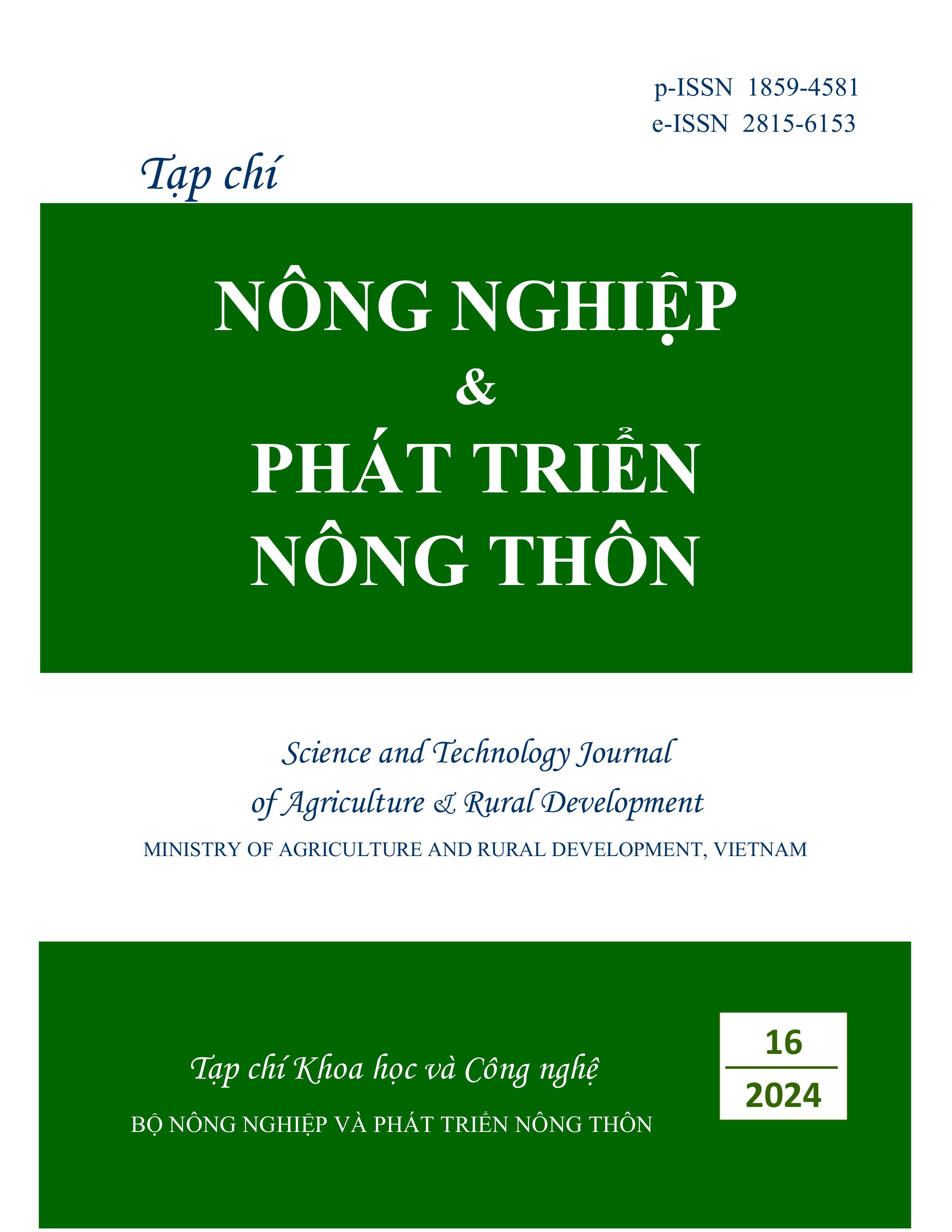EVALUATION OF THE ANTIMICROBIAL CAPABILITY OF BIOPRODUCTS AGAINST Vibrio parahaemolyticus AND THEIR EFFECTIVENESS IN DISEASE PREVENTION FOR WHITE LEG SHRIMP (Litopenaeus vannamei)
DOI:
https://doi.org/10.71254/xdte1630Keywords:
V. parahaemolyticus, probiotics, herbal extract, antibiotics, Litopenaeus vannameiAbstract
This study evaluated the antibacterial activity of 4 commercial probiotics (VS01, VS02, VS04 and VS04), 3 herbal bioproducts (P. betle, C. asiatica, O. basilicum) against V. parahaemolyticus in comparison with 3 common antibiotics (amoxicillin, tetracycline, doxycycline) via zone diameter of inhibition, minimum inhibitory concentration and minimum bactericidal concentration, capability in the reduction of enumerating pathogens and the protection of the white leg shrimp (Litopenaeus vannamei) challenged with V. parahaemolyticus. Results showed that bioproducts and antibiotics can be categorized into 4 groups regarding antimicrobial activity: i) very high: P. betle, C. asiatica, O. basilicum and doxycycline; ii) high: probiotic VS01, VS02, VS03 and tetracycline; iii) moderate: amoxicillin; and iv) non-effective: probiotic VS04. Most of the bioproducts significantly improved the survival of challenged post larvae (P < 0.05) in which the 3 herbal products showed the highest results. The study provided more information on the antibacterial capability of bioproducts against V. parahaemolyticus and their application in the control of shrimp diseases.






